Tofu is a nutrient-dense, plant-based protein made from soybeans, offering remarkable health benefits backed by modern science.
It’s rich in high-quality protein, calcium, iron, and essential amino acids — making it one of the best meat alternatives for promoting heart, bone, and hormonal health.
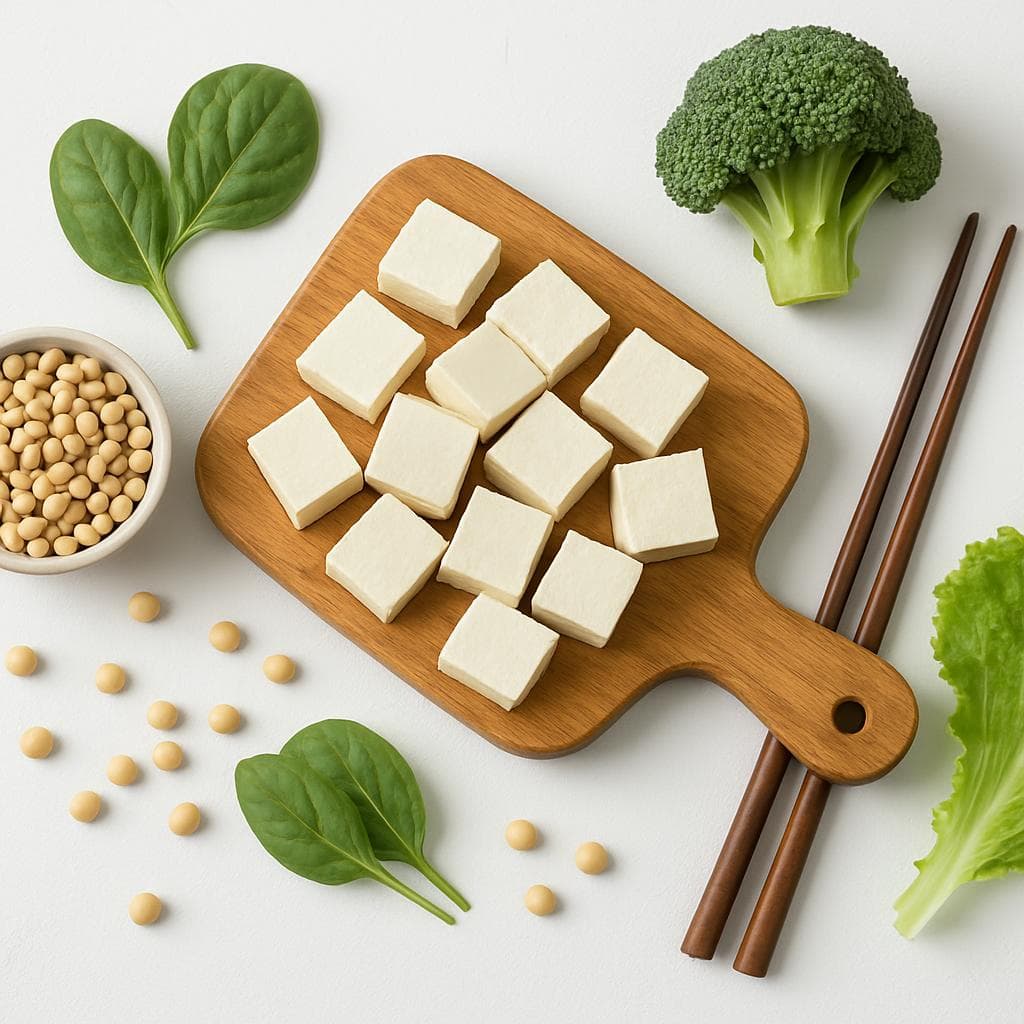
So, what are the benefits of tofu?
Tofu supports heart health, strengthens bones, helps regulate blood sugar, aids in weight management, balances hormones, and may even lower cancer risk. It’s also gentle on digestion and beneficial for brain and immune function.
Because tofu is cholesterol-free, low in saturated fat, and rich in isoflavones, it fits perfectly into both vegetarian and non-vegetarian diets focused on longevity and disease prevention.
According to the Harvard T.H. Chan School of Public Health – Soy & Health, soy foods like tofu are linked to improved cardiovascular health, reduced inflammation, and healthier aging outcomes.
10 Proven Health Benefits of Tofu (Science-Based)
Tofu is more than just a plant-based protein — it’s a nutrient-dense superfood backed by modern science. Rich in essential amino acids, calcium, iron, and antioxidants, tofu supports heart, bone, and hormonal health.
Below are 10 science-backed benefits of tofu, with real studies and credible health authority references.
1. Promotes Heart Health

Tofu supports cardiovascular wellness by lowering cholesterol and improving blood vessel elasticity. It contains isoflavones and unsaturated fats, both of which are scientifically proven to reduce LDL (“bad”) cholesterol while maintaining healthy HDL (“good”) levels.
A 2023 meta-analysis in Frontiers in Nutrition reported that individuals who consumed soy protein regularly experienced a 6% reduction in total cholesterol and significant improvement in arterial flexibility.
Tofu’s magnesium and omega-3 content also contribute to blood pressure regulation and reduced inflammation — two key factors for preventing heart disease.
Key Nutrients: Omega-3 fats, magnesium, and isoflavones
Tip: Replace red or processed meat with tofu at least 2–3 times per week for optimal heart health.
Reference: Harvard T.H. Chan School of Public Health – Soy and Heart Health
2. Supports Strong Bones and Teeth

Calcium-set tofu is one of the best plant-based sources of bone-supporting nutrients, making it a smart alternative to dairy products for maintaining strong bones and preventing osteoporosis.
This variety of tofu is often fortified with calcium, phosphorus, magnesium, and vitamin D — all of which are essential for bone mineralization and skeletal strength.
According to the National Center for Complementary and Integrative Health (NCCIH), research on soy-based foods suggests that regular soy consumption may help reduce bone loss, particularly in postmenopausal women, due to the mild estrogen-like activity of isoflavones. These plant compounds support bone metabolism and help preserve bone density over time.
Unlike many dairy sources, tofu delivers these bone-building benefits without saturated fat or cholesterol, making it ideal for heart and skeletal health alike.
Key Nutrients: Calcium, phosphorus, magnesium, vitamin D
Tip: Choose calcium-sulfate–set tofu, which retains more calcium during processing, to naturally boost your daily intake and support long-term bone health.
3. Helps Regulate Blood Sugar and Insulin Levels
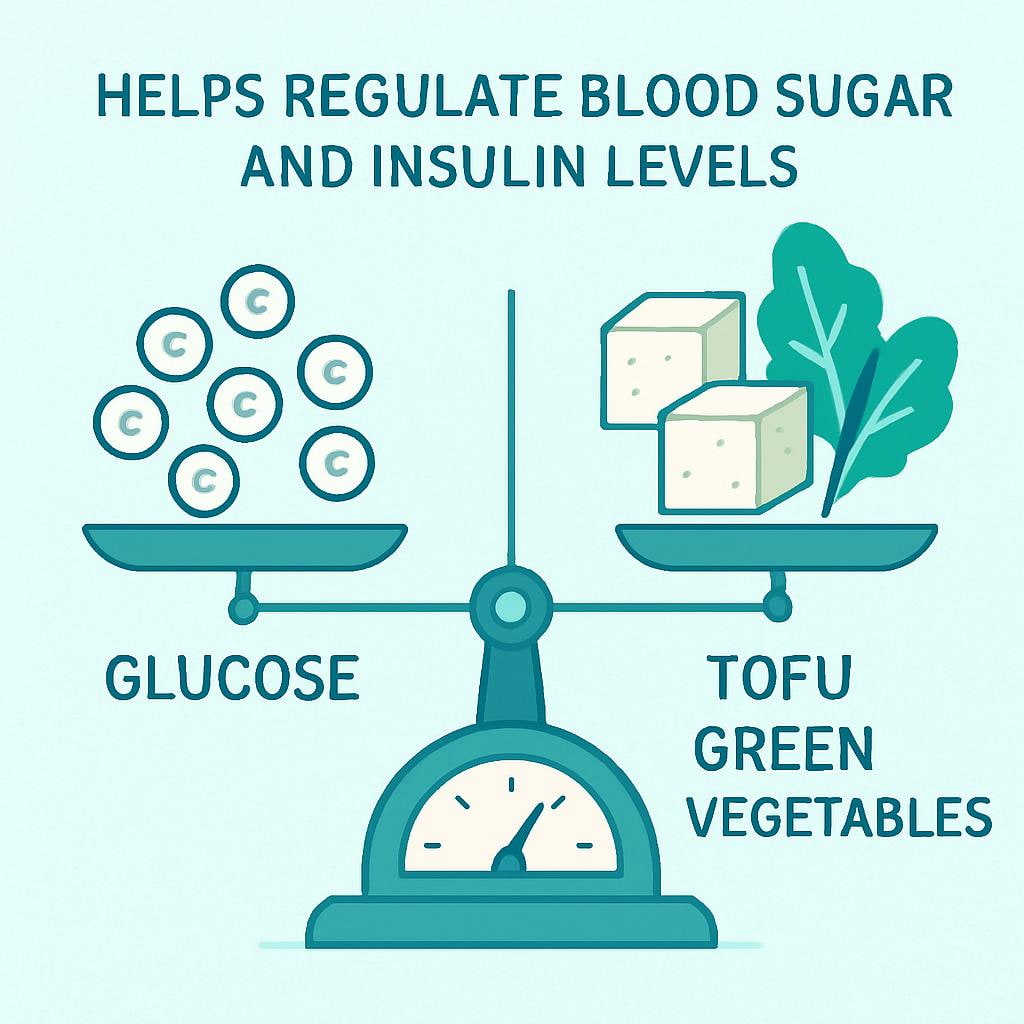
Tofu has a low glycemic index (GI) and provides high-quality plant protein that stabilizes post-meal blood glucose levels.
A 2022 study in Nutrients found that soy isoflavones enhance insulin sensitivity and glucose metabolism, reducing the risk of type 2 diabetes in adults.
Tofu also helps replace refined carbohydrates or red meats that worsen insulin resistance.
This makes it an excellent protein source for people with prediabetes or metabolic syndrome.
Ideal for: People managing diabetes or insulin resistance
Tip: Pair tofu with fiber-rich foods like quinoa, broccoli, or brown rice to further regulate blood sugar.
Reference: National Library of Medicine – Soy and Insulin Sensitivity
4. Aids in Weight Management

Tofu is naturally low in calories but high in protein, which helps control appetite and promote fat loss.
Protein increases satiety hormones and boosts thermogenesis (the process of burning calories for heat), aiding sustainable weight control.
The Cleveland Clinic (2025) emphasizes tofu as an ideal protein for those following a weight-loss or plant-based diet, since it provides complete amino acids with minimal fat.
Serving Idea: Add grilled tofu to salads, soups, or stir-fries for a nutrient-dense, low-calorie meal.
Reference: Cleveland Clinic – Tofu Benefits
5. Supports Hormonal Balance
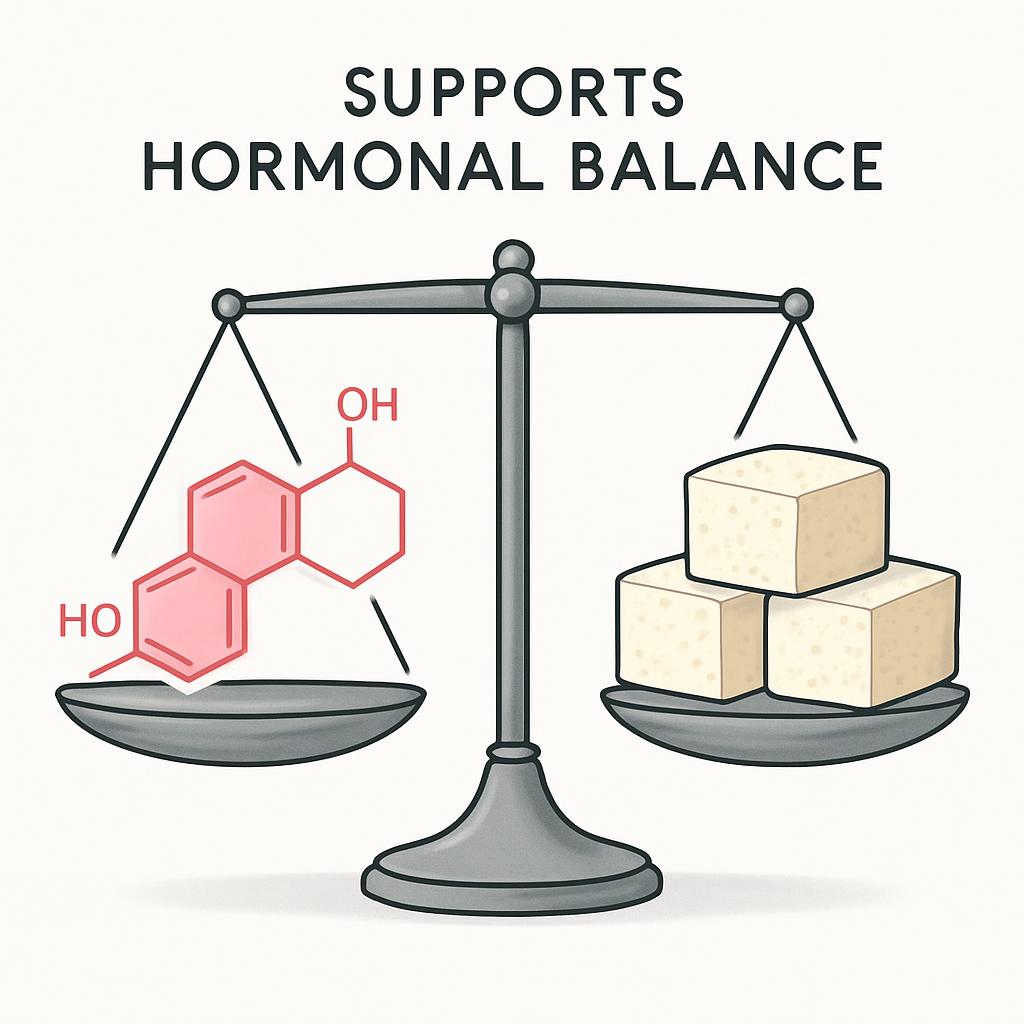
Tofu contains isoflavones — natural phytoestrogens that help support hormonal balance, especially in women during menopause and perimenopause. These plant compounds have a structure similar to estrogen and can gently regulate hormonal activity in the body without causing disruption.
According to a 2025 review published by the American Society for Nutrition, soy foods such as tofu are safe and beneficial for women’s hormonal health. The study found that consuming soy isoflavones does not raise estrogen levels or increase the risk of hormone-sensitive conditions. In fact, moderate intake may reduce menopausal symptoms like hot flashes, mood swings, and night sweats while promoting long-term well-being.
Because tofu provides gentle hormonal support without the risks associated with synthetic hormone therapy, it is widely recommended as a natural dietary approach for maintaining balance through hormonal transitions.
Tip: Eat ½ cup (about 100 g) of tofu daily to help manage menopause-related symptoms and support overall hormonal wellness.
6. May Reduce Cancer Risk
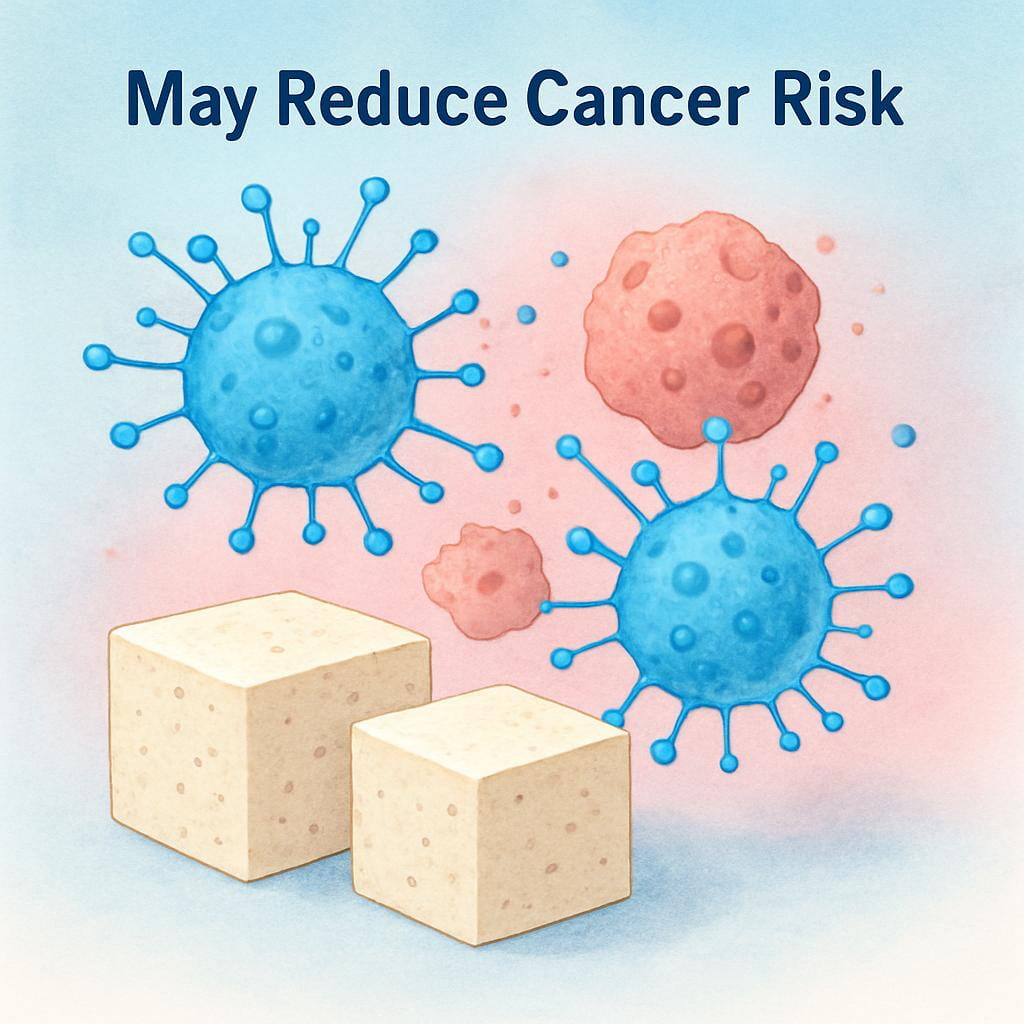
Contrary to popular myths, tofu does not increase breast cancer risk. In fact, studies show that soy consumption may lower cancer recurrence risk and provide protective antioxidant effects.
According to the American Cancer Society (2024), moderate soy intake is associated with reduced breast and prostate cancer risk.
Isoflavones in tofu act as antioxidants, reducing oxidative DNA damage and suppressing inflammation that can contribute to tumor growth.
Mechanism: Isoflavones block harmful free radicals and inhibit cancer cell proliferation.
Reference: American Cancer Society – Soy and Cancer Risk
7. Boosts Muscle Growth and Recovery

Tofu is a complete protein, providing all nine essential amino acids necessary for muscle synthesis and tissue repair.
Each 100-gram serving offers 10–12 grams of protein, similar in quality to animal-based sources like chicken or eggs.
A 2024 study in Nutrients found that soy protein stimulates muscle protein synthesis as effectively as whey when consumed post-workout.
Its high iron and magnesium content further aids in recovery by improving oxygen delivery to muscles.
Tip: Combine tofu with complex carbs such as brown rice or sweet potatoes for faster recovery after exercise.
Reference: Nutrients Journal – Soy Protein and Muscle Health
8. Improves Digestive Health
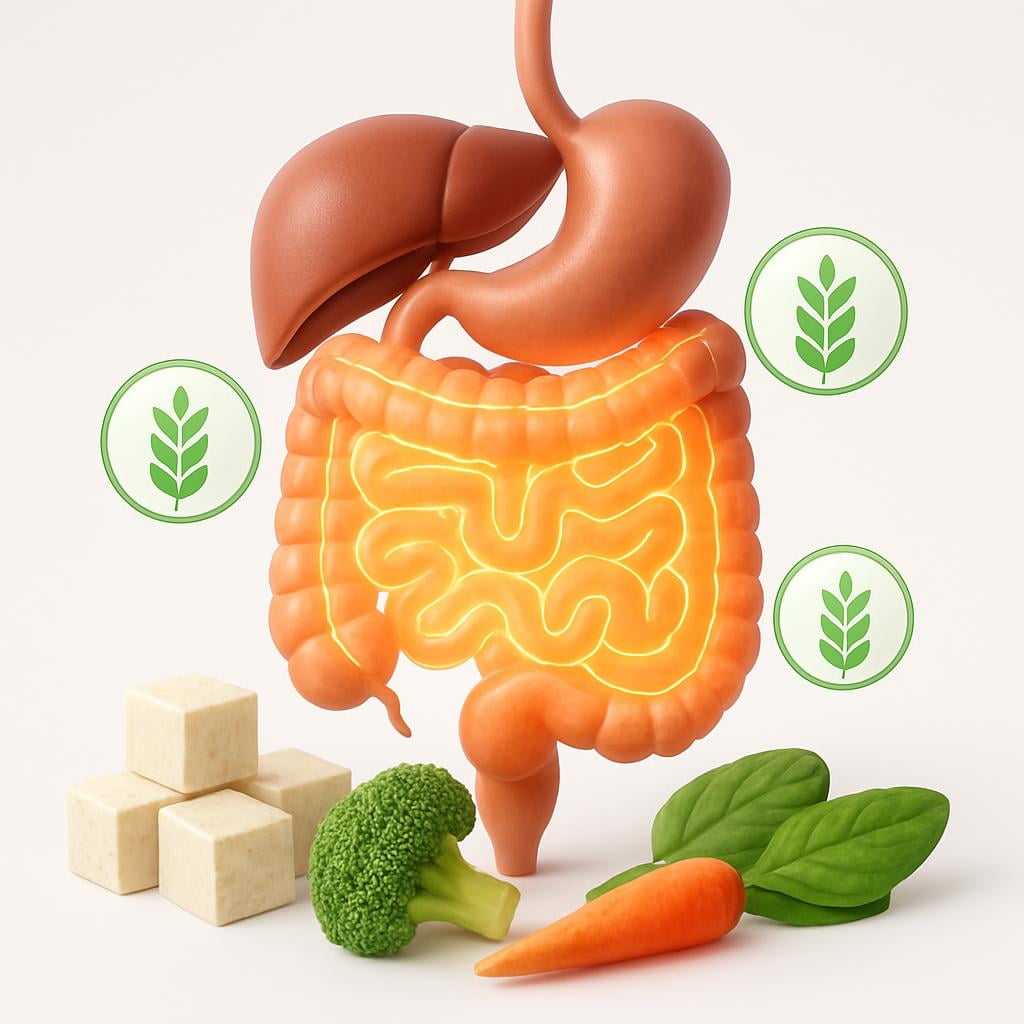
Tofu is gentle on the digestive system and ideal for individuals with lactose intolerance or sensitive stomachs.
It contains prebiotic compounds that feed beneficial gut bacteria, supporting microbiome diversity and intestinal health.
Additionally, tofu’s plant-based proteins are easier to digest than animal proteins due to the absence of saturated fats.
Organic tofu, free of preservatives or artificial flavoring, is the healthiest choice for optimal digestion.
Tip: Combine tofu with high-fiber vegetables like spinach, kale, or cabbage for smoother digestion.
Reference: Harvard Health – Plant-Based Eating and Digestive Health
9. Supports Brain and Cognitive Function

Tofu’s combination of iron, zinc, and lecithin supports brain health by improving neurotransmitter function and oxygen circulation.
A 2023 study in Frontiers in Aging Neuroscience showed that higher soy isoflavone intake was associated with better memory and cognitive performance in older adults.
Tofu’s antioxidant compounds also protect brain cells from oxidative stress and may help delay age-related cognitive decline.
It’s a great addition to a Mediterranean or plant-based diet aimed at maintaining mental sharpness.
Key Nutrients: Iron, zinc, lecithin, and isoflavones
Reference: Frontiers in Aging Neuroscience – Soy and Cognitive Function
10. Strengthens the Immune System
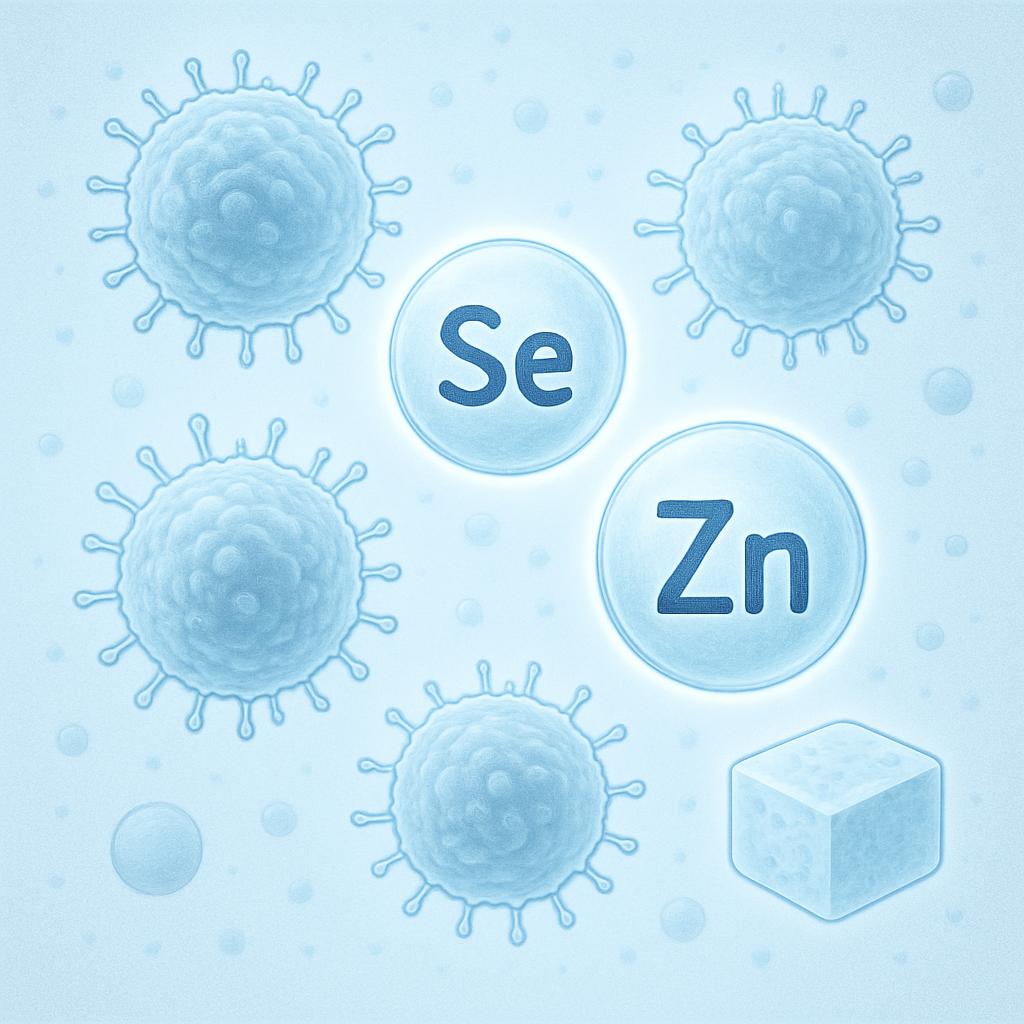
Tofu is rich in iron, selenium, and zinc, minerals essential for maintaining a strong immune defense.
These nutrients help the body produce antibodies and combat oxidative stress that weakens immunity.
According to the NIH Office of Dietary Supplements (2024), selenium and zinc are vital for the proper function of immune cells and antioxidant enzymes.
Regular tofu consumption contributes to better resilience against infections and chronic inflammation.
Tip: Combine tofu with vitamin C-rich foods such as bell peppers or oranges to enhance mineral absorption.
Reference: NIH – Micronutrients and Immune Function
How to Eat Tofu for Best Results

Tofu is safe, versatile, and easy to include in your diet when consumed correctly. Following the right serving sizes and preparation methods ensures you gain the maximum health benefits without side effects.
Recommended Serving Size
- Ideal amount: 100–150 grams (3.5–5 ounces) per meal
- Weekly frequency: 2–4 servings per week
- For active adults: Can be increased slightly to meet protein needs
Best Types of Tofu to Choose
- Firm or Extra-Firm Tofu: Best for grilling, baking, and stir-frying; holds shape well.
- Silken Tofu: Smooth texture ideal for soups, desserts, and smoothies.
- Sprouted Tofu: Easier to digest and slightly higher in nutrients and protein.
- Calcium-Set Tofu: Provides added calcium — excellent for bone health.
Cooking Tips for Maximum Nutrition
- Cook with healthy oils like olive or avocado oil to add healthy fats.
- Combine tofu with fiber-rich vegetables (broccoli, kale, spinach) and whole grains for balanced nutrition.
- Avoid deep-frying; instead, opt for grilling, baking, or pan-searing.
- Add soy sauce, garlic, ginger, or turmeric for antioxidant and flavor boosts.
Storage and Freshness
- Refrigerate after opening and consume within 3 days.
- Change the soaking water daily to maintain freshness.
- For longer storage, freeze tofu, then thaw and squeeze excess water before cooking.
Pro Tip
For a clean and nutrient-rich diet, use organic, non-GMO tofu to avoid pesticide or chemical residues.
Reference: Cleveland Clinic – Tofu Nutrition and Benefits
Possible Side Effects and Precautions (Safety & Compliance Section)
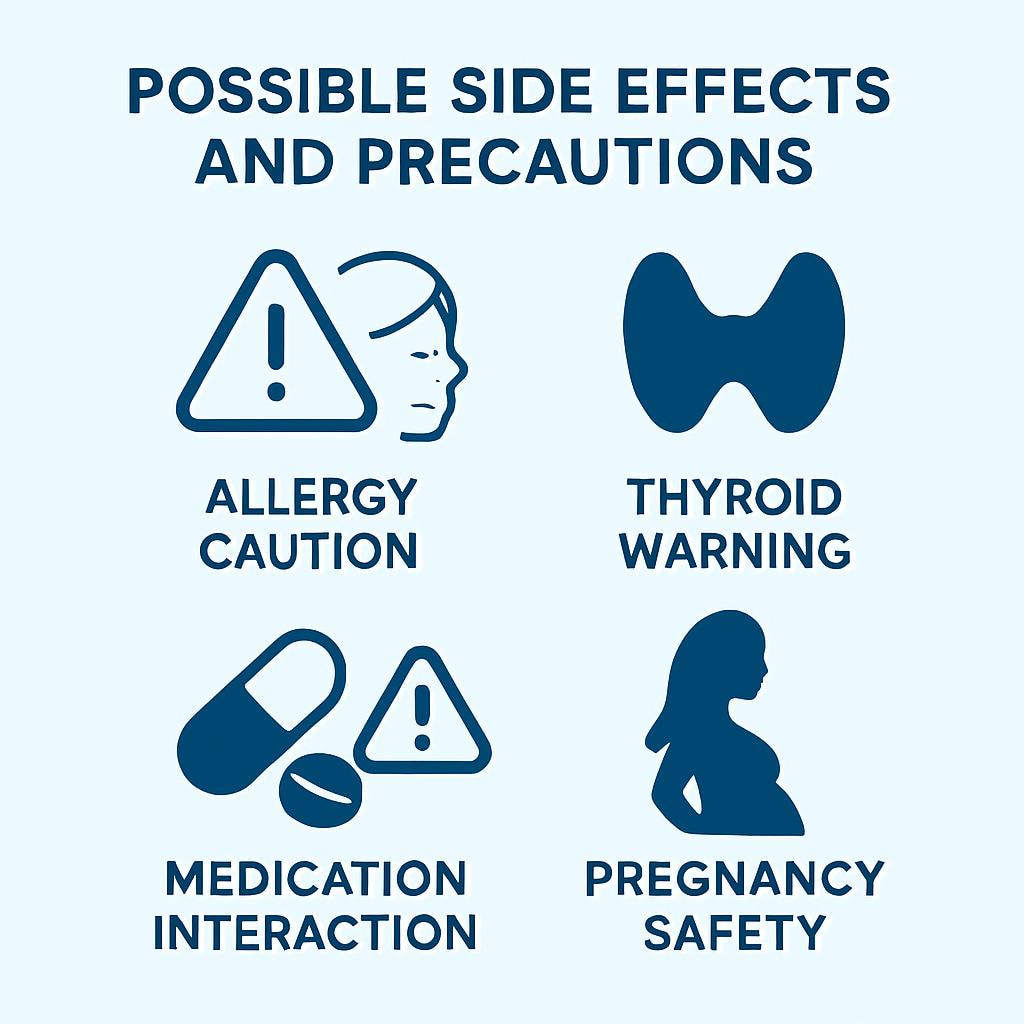
While tofu is safe for most people, certain precautions are essential for those with allergies, hormonal conditions, or specific dietary needs.
1. Soy Allergy
Some individuals are allergic to soy proteins found in tofu. Symptoms may include skin rash, itching, throat swelling, or digestive discomfort.
→ If you experience these symptoms, stop consumption immediately and consult a doctor.
Reference: Mayo Clinic – Food Allergies Overview
2. Thyroid Considerations
For most people, eating tofu in moderation is safe, but individuals with thyroid disorders should take certain precautions. Soy contains isoflavones, plant compounds that can slightly affect the way the thyroid gland uses iodine — a key mineral needed to produce thyroid hormones.
According to the National Center for Complementary and Integrative Health (NCCIH), soy foods do not cause thyroid disease in healthy individuals with adequate iodine intake. However, in those with hypothyroidism or iodine deficiency, large amounts of soy may reduce thyroid hormone absorption if taken too close to medication.
If you’re taking thyroid hormone replacement therapy (such as levothyroxine), experts recommend:
- Take your medication on an empty stomach and wait at least 2–4 hours before eating tofu or other soy foods.
- Ensure sufficient iodine intake through iodized salt, seaweed, or fortified foods to support normal thyroid function.
- Consult your healthcare provider before making major dietary changes if you have thyroid concerns.
Tip: You don’t need to avoid tofu completely — just space it several hours apart from your medication to maintain proper hormone balance.
3. Medication Interactions
When you’re regularly consuming tofu, it’s important to consider how it may interact with certain medications. Some compounds found in tofu — particularly isoflavones, plant-based bioactives that act similarly to hormones — can potentially affect how other medications work in your body.
For example, if you are on hormone-based therapies, anticoagulants, or cancer treatments, the interaction of soy-derived isoflavones with your current regimen should be reviewed by a healthcare professional. According to the Verywell Health – Soy and Thyroid/Medication Considerations resource, soy foods may interfere with the absorption of certain drugs, such as thyroid replacement medications and other hormone-sensitive treatments.
Tip: Always consult your doctor or pharmacist before integrating tofu or other soy-based foods into your diet if you are taking medications for hormones, blood clotting, or cancer therapy. Keeping a consistent daily dietary routine and clearly communicating your soy intake can help your provider make the best decisions for you.
4. Digestive Sensitivity
Tofu is generally easy to digest but may cause bloating or mild gas in people with sensitive stomachs.
→ Start with small portions and choose sprouted tofu to improve tolerance.
5. Pregnancy and Child Safety
Tofu is considered safe during pregnancy and for children when consumed in moderation as part of a balanced diet. Whole-food soy products such as tofu provide high-quality plant-based protein, iron, calcium and other nutrients essential for growth and development.
According to the National Center for Complementary and Integrative Health (NCCIH) – Soy: Usefulness and Safety, moderate consumption of soy foods does not pose health risks for pregnant women or children when iodine intake is adequate and the diet is varied. The key is to choose pasteurized tofu (to avoid food-borne risks) and to treat tofu like any other protein food—ensuring portion control and balanced dietary context.
Tip: During pregnancy, opt for pasteurized, well-cooked tofu and aim for typical serving sizes (e.g., 100 g) a few times per week rather than very high daily amounts. Pair it with foods rich in omega-3s and variety to support fetal growth and maternal health.
Frequently Asked Questions (FAQ)
1. Is tofu good for diabetics?
Yes. Tofu has a low glycemic index and high protein content, which helps regulate blood sugar and prevent insulin spikes.
2. Does tofu affect hormones?
No negative effect in normal servings. The phytoestrogens in tofu are plant-based compounds that may support hormonal balance, especially in menopausal women.
3. Can men eat tofu safely?
Absolutely. Research confirms that tofu does not lower testosterone or fertility when consumed in moderate amounts.
4. How often should I eat tofu per week?
Most nutritionists recommend 2–4 servings weekly as part of a balanced diet.
5. Is tofu good for weight loss?
Yes. It’s low in calories and high in protein, helping you stay full longer and burn more calories.
6. Is tofu safe during pregnancy?
Yes, if it’s pasteurized and well-cooked. It provides protein, iron, and calcium vital for fetal growth.
7. Is tofu gluten-free?
Plain tofu is naturally gluten-free, but check labels on flavored or pre-marinated products for additives.
Conclusion
Tofu is a science-backed superfood that delivers exceptional nutritional and health benefits — from heart and bone protection to hormonal balance and blood sugar control. When eaten in moderation and prepared correctly, it supports longevity, immune strength, and overall wellness.
Whether you’re vegetarian or just aiming to eat healthier, tofu is a smart, sustainable way to add more plant-based protein to your diet.
✅ Try adding tofu to your meals twice a week — your heart, bones, and body will thank you.
References:
- Harvard T.H. Chan School of Public Health – Straight Talk About Soy
- Cleveland Clinic – Tofu Benefits: Why This Plant Protein Deserves a Spot on Your Plate
- American Cancer Society – Soy and Cancer Risk: Our Experts’ Advice
- NIH Office of Dietary Supplements – Soy Fact Sheet for Health Professionals
- Frontiers in Nutrition – Effects of Soy Protein Intake on Lipid Profiles: A Meta-Analysis (2023)
